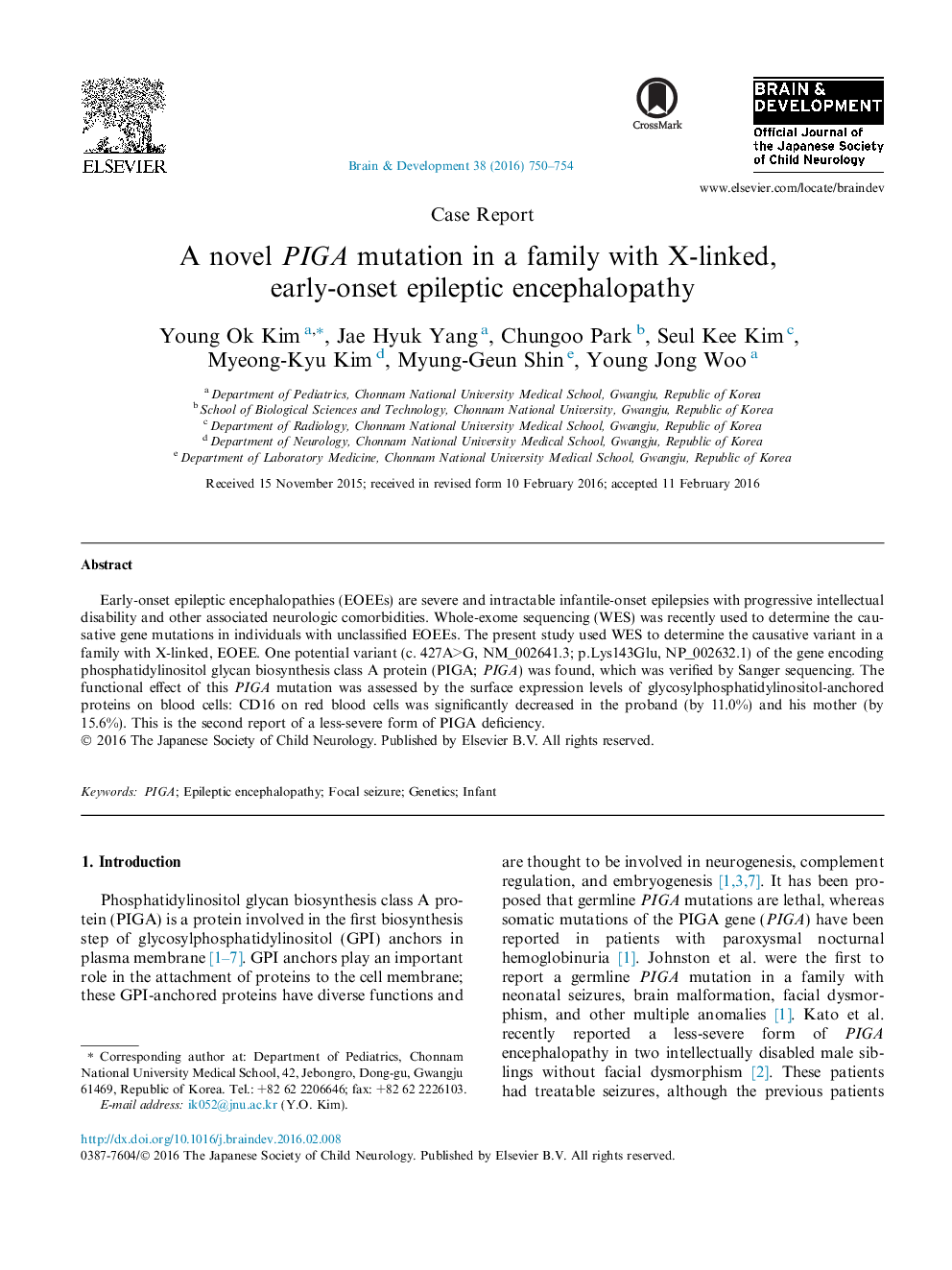| Article ID | Journal | Published Year | Pages | File Type |
|---|---|---|---|---|
| 3036451 | Brain and Development | 2016 | 5 Pages |
Abstract
Early-onset epileptic encephalopathies (EOEEs) are severe and intractable infantile-onset epilepsies with progressive intellectual disability and other associated neurologic comorbidities. Whole-exome sequencing (WES) was recently used to determine the causative gene mutations in individuals with unclassified EOEEs. The present study used WES to determine the causative variant in a family with X-linked, EOEE. One potential variant (c. 427A>G, NM_002641.3; p.Lys143Glu, NP_002632.1) of the gene encoding phosphatidylinositol glycan biosynthesis class A protein (PIGA; PIGA) was found, which was verified by Sanger sequencing. The functional effect of this PIGA mutation was assessed by the surface expression levels of glycosylphosphatidylinositol-anchored proteins on blood cells: CD16 on red blood cells was significantly decreased in the proband (by 11.0%) and his mother (by 15.6%). This is the second report of a less-severe form of PIGA deficiency.
Related Topics
Life Sciences
Neuroscience
Developmental Neuroscience
Authors
Young Ok Kim, Jae Hyuk Yang, Chungoo Park, Seul Kee Kim, Myeong-Kyu Kim, Myung-Geun Shin, Young Jong Woo,
